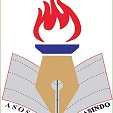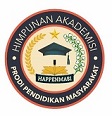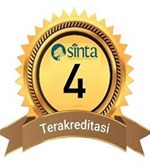EFEKTIVITAS PENGELOLAAN BADAN USAHA MILIK DESA DALAM PEMBERDAYAAN MASYARAKAT DI DESA SIGERONGAN
Abstract
The problem raised in this study is how the effectiveness of the management of Village-Owned Enterprises in community empowerment in Sigerongan Village. This study aims to determine the level of effectiveness of the management of Village-Owned Enterprises in community empowerment in Sigerongan Village. This study uses an evaluative method with the CIPP model (context, input, process, product). This study does not use a sample because the population is less than one hundred, while the number of subjects is 20 people and the data collection techniques used are questionnaires, observation, documentation. The analytical method used is a Likert scale percentage technique analysis with the respondent's answer score formula for the ideal score times 100%. The results of the analysis of the Likert scale percentage technique show that the context component is in the very effective category, namely 88.5%, the input component is in the very effective category, namely 81.5%, the process component is in the very effective category, which is 80.4% and the last component is the the product is in the effective category, which is 79.25%. While the overall results are in the very effective category, namely 82.8%, which means that it has been running very effectively. So it can be concluded that the effectiveness of the management of Village Owned Enterprises in community empowerment in Sigerongan Village has been running effectively with the objectives to be achieved
Key Words: Effectiveness, Management, Village Owned Enterprises
Masalah yang diangkat dalam penelitian ini adalah bagaimana efektivitas pengelolaan Badan Usaha Milik Desa dalam pemberdayaan masyarakat di Desa Sigerongan. Penelitian ini bertujuan untuk mengetahui tingkat efektivitas pengelolaan Badan Usaha Milik Desa dalam pemberdayaan masyarakat di Desa Sigerongan. Penelitian ini menggunakan metode evaluative dengan model CIPP (context, input, process, product). Penelitian ini tidak menggunakan sampel karena jumlah populasinya kurang dari seratus, adapun jumlah subjek berjumlah 20 orang dan teknik pengumpulan data yang digunakan yaitu angket, observasi, dokumentasi. Metode analisis yang digunakan adalah analisis teknik persentase skala likert dengan rumus skor jawaban responden bagi skor ideal kali 100%. Hasil dari analisis teknik persentase skala likert ini menunjukan bahwa komponen context masuk kategori sangat efektif yakni 88,5%, komponen input masuk kategori sangat efektif yakni 81,5%, komponen process masuk kategori sangat efektif yakni 80,4% dan yang trakhir adalah komponen product masuk kategori efektif yakni 79,25%. Sedangkan hasil keseluruhan berada pada kategori sangat efektif yakni 82,8%, yang brarti sudah berjalan secara sangat efektif. Jadi dapat disimpulkan bahwa efektivitas pengelolaan Badan Usaha Milik Desa dalam pemberdayaan masyarakat di Desa Sigerongan sudah berjalan secara efektif sehingga yang direncanakan bias tercapa
Kata Kunci: Efktivitas, Pengelolaan, Badan Usaha Milik Desa
Full Text:
PDFReferences
Arikunto, Suharsimi. 2010. Prosedur Penelitian Suatu Pendekatan Praktik. Jakarta: PT. Rineka Cipta.
Hudiono, Arief. 2018. Efektivitas Program BUM Desa dalam Pemberdayaan Ekonomi Masyarakat Desa. Studi Kasus BUMDesa Arto Doyo Desa Samudra Kulon, Kecamatan Gumelar, Banyumas, Purwokerto.
Sugiyono. 2011. Metode Penelitian Kuantitatif Kualitatif dan R&D. Bandung: CVAlfabeta.
Sugiyono. 2014. Metode Penelitian Pendidikan Pendekatan Kuantitatif, Kualitatif dan R&D. Bandung:Alfabet
Sugiyono. 2015. Metode Penelitian Dan Pengembangan Research And Development. Bandung: Alfabeda CV.
Sudiapermana, E. 2009. Pendidikan Informal. Jurnal Pendidikan Luar Sekolah, 4(2).
Undang-Undang Republik Indonesia Nomor 20 Tahun 2003 Tentang Sistem Pendidikan Nasional. 2010. Bandung : Citra Umbara.
Badan Pusat Statistik. 2019. diakses 11 April 2022 pukul 10:00 WITA https://bps.go.id/subject/23/kemiskinan-dan-ketimpangan.
DOI: https://doi.org/10.33394/jtni.v9i1.7210
Refbacks
- There are currently no refbacks.
Copyright (c) 2023 Transformasi : Jurnal Penelitian dan Pengembangan Pendidikan Non Formal Informal
This Journal has been Indexed by:
Jurnal Transformasi
ISSN: 2442-5842 (Print)
ISSN: 2962-9306 (Online)
Published by Program Pendidikan Luar Sekolah, FIPP
Universitas Pendidikan Mandalika
Email: [email protected]
No. WhatsApp: 087863548098

This work is licensed under a Creative Commons Attribution-ShareAlike 4.0 International License.















